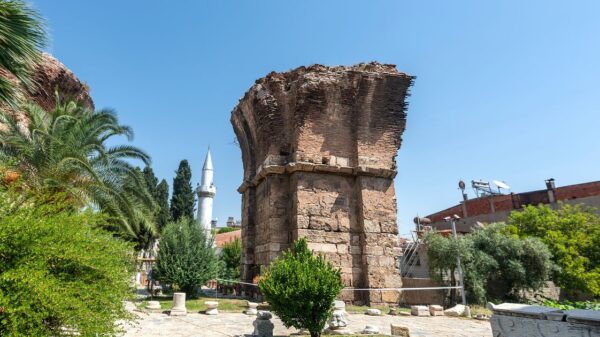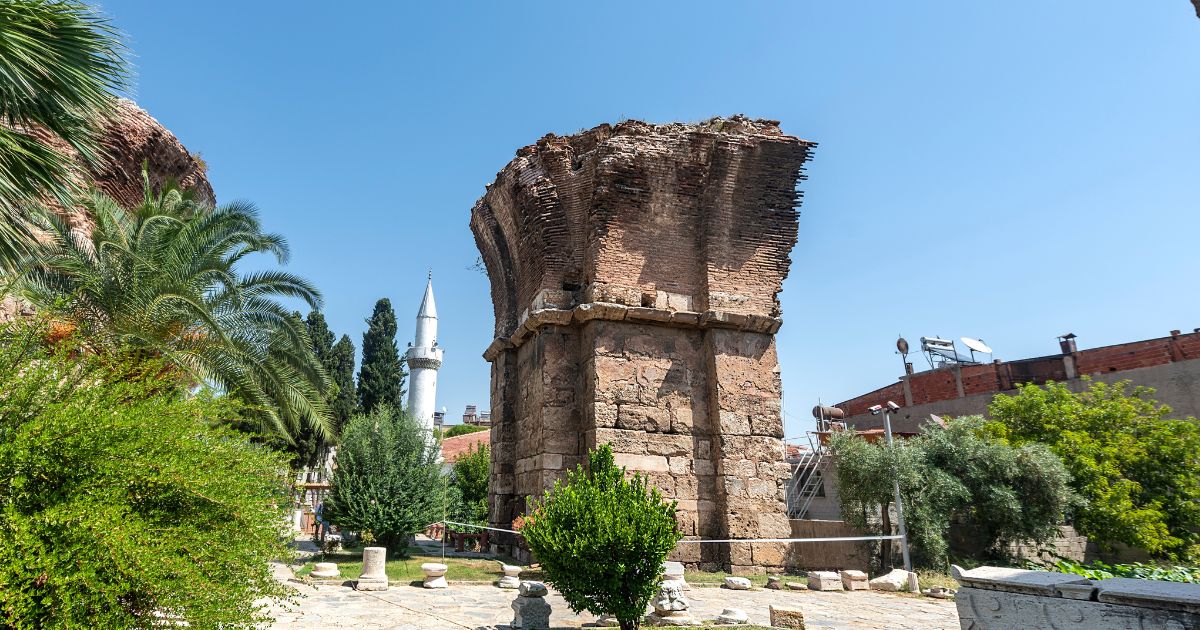Archaeologists in the Karaman Governorship of south-central Turkey have unearthed a remarkable artifact: a carbonized loaf of bread dating back to the 7th or 8th century. The discovery, announced on October 8, 2023, was made at the Topraktepe archaeological site, the location of the ancient city of Eirenopolis. This find is one of five loaves discovered, each providing fascinating insights into the early Christian community.
The loaf features an inscription that reads, “With gratitude to the Blessed Jesus,” a testament to its significance in the context of early Christian worship. The depiction of Christ, portrayed as a farmer or someone sowing, reflects the symbolic importance of fertility and labor in the religious thought of that era. The bread is believed to have been baked for use in communion, making it one of the best-preserved examples from the Anatolia region.
Historical Context and Significance
The discovery of this ancient bread invites reflection on the way Christian teachings spread throughout history. As noted by experts, such findings underscore how the message of Christ reached even the most common individuals, outside of the elite circles in major cities like Constantinople. Giovanni Collamati, a professor of history at CEU San Pablo University in Madrid, highlighted that this bread represents “much more local liturgical worship.” He pointed out that it reflects the devotion of ordinary people rather than the elite, showcasing the grassroots nature of early Christian practice.
This loaf, estimated to be at least 1,200 years old, serves as a tangible connection to the past. It emphasizes that the teachings of Christ resonated with many, as evidenced by the presence of such artifacts in various locations. The survival of the loaf, despite being discarded centuries ago, illustrates how the legacy of early Christianity continues to be uncovered through archaeological work.
Implications for Understanding Early Christianity
The bread’s discovery contributes to a growing body of evidence that highlights the widespread nature of early Christian beliefs. It serves as a reminder of the role that seemingly mundane objects can play in telling the story of faith and devotion across time. As Collamati stated, this find enriches our understanding of how the common person engaged with religious practices, often in ways that differ significantly from the narratives of the elite.
The Topraktepe site, rich in history, continues to yield artifacts that inform our understanding of early Christian life and worship. Each find, including this loaf, adds depth to the historical record of Christianity’s development in the region. As researchers continue to study these artifacts, they reveal the profound impact of faith on everyday lives, illustrating how the reverberations of Christ’s teachings spread far beyond the walls of ancient churches.
In summary, the discovery of this ancient loaf of bread not only highlights the culinary practices of the time but also serves as a poignant reminder of the enduring message of Christianity. As modern society reflects on its spiritual heritage, such finds remind us of the historical tapestry that connects us to the past.






































































